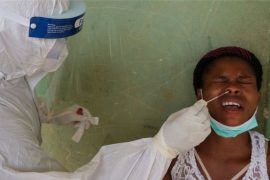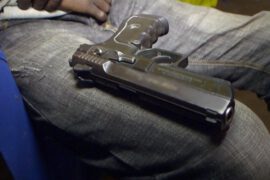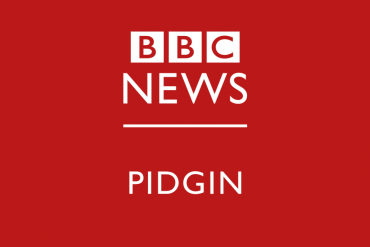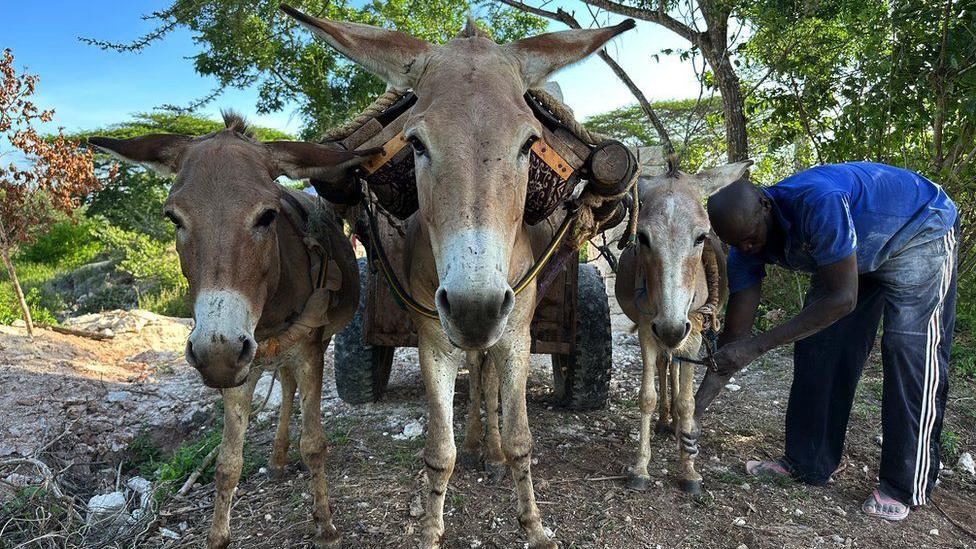
Steve dey always rely completely on im donkeys to sell water and make a living. Di donkeys dey carry am for im cart loaded with 20 jerrycan of water to all im customers. Wen dem tiff Steve donkeys sake of dia skins, e no fit work again.
Dat day begin like normal day. Im comot for house for morning for di outskirts of Nairobi and go to di field to get im animals.
“I no see dem,” im tok. “I search all day, all night and di next day.” Na three days later im friend call am and tok say im don see di animal skeletons. “Dem don slaughter dem and dia skin no dey dia.”
To dey tiff Donkeys anyhow don dey increase across many parts of Africa – and in oda parts of di world wia di population of dis working animals plenty. Steve – and im donkeys – na collateral damage for inside dis controversial global trade in donkey skin.
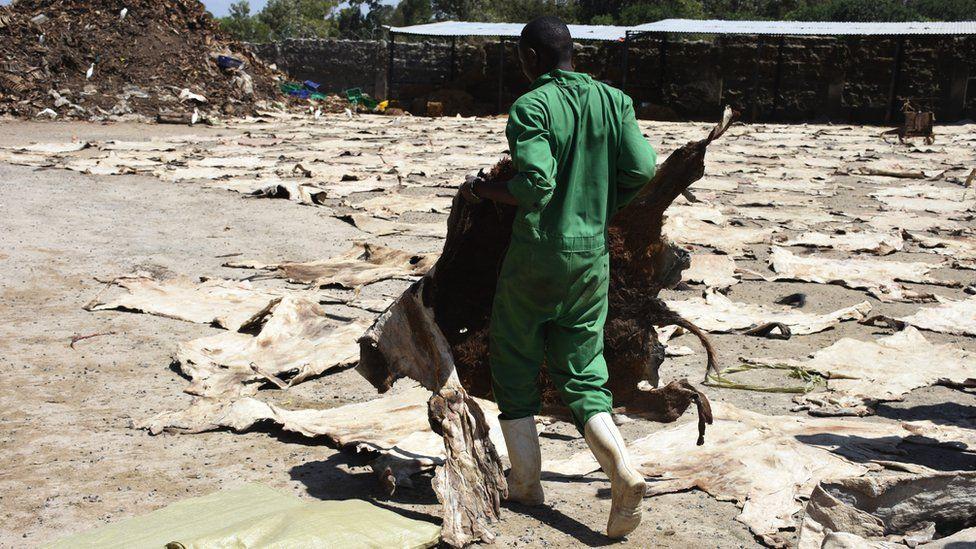
Im origin na thousands of miles from dat field for Kenya. For China, e get one traditional medicin wey dem dey use di gelatin for donkey skin dey make, and e dey for high demand. Dem dey call am Ejiao.
Pipo believe say di medicine get properties wey dey good for health and dey preserve youth. Dem go cook di Donkey skin to comot di gelatin, bifor dem go turn am into powder, pill or liquid, or dem go add am to food.
Campaigners against di trade tok say pipo like Steve – and di donkeys wey dem dey depend on – na dem be victims of dis unsustainable demand for Ejiao traditional ingredient.
For one new report, di Donkey Sanctuary, wey don dey campaign against di trade since 2017, tok say at least 5.9 million donkeys dey die evri year sake of di demand for Ejiao. And di charity say demand sef dey increase, even though di BBC neva verify those figures.
E dey very difficult to know exactly how many donkeys dem dey kill to supply di Ejiao industry.
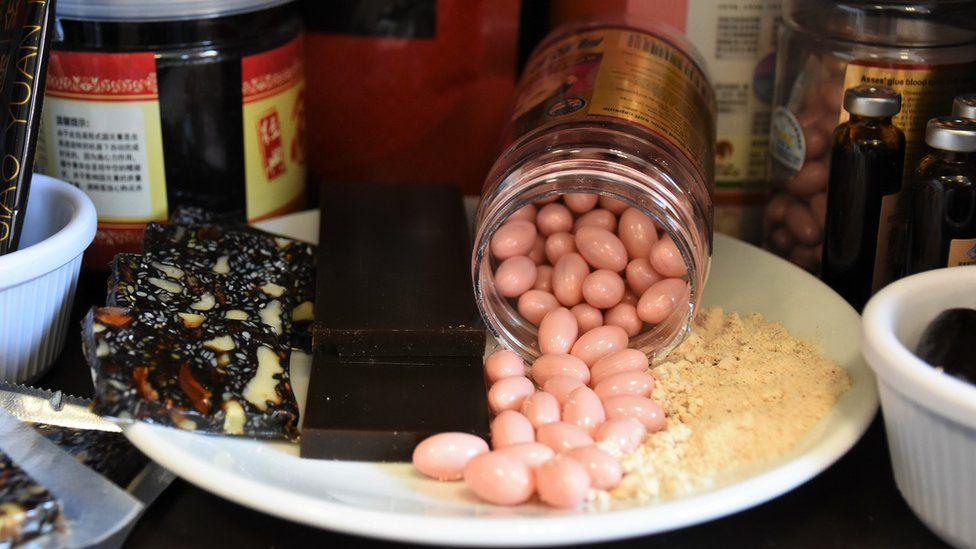
For Africa, wia almost two-third of di 53 million donkeys wey dey di world dey live, e get a number of regulations. Export of donkey skin dey legal for some countries and illegal for others. But high demand and high prices for skins dey fuel di stealing of donkeys, and di Donkey Sanctuary tok say dem don discover how dem dey move di animals across international borders go reach kontris where di trade dey legal.
However, e dey look like say turning point go soon reach becos goment of all African kontris, and di goment of Brazil, don dey ready to ban di slaughter of Donkeys sake of how di donkey population dey shrink.
Solomon Onyango, wey dey work for di Donkey Sanctuary for Nairobi, say: “Between 2016 and 2019, we dey estimate say almost half of di donkeys for Kenya na im dem slaughter [to take supply di skin trade].”
Dis na di same animal wey dey carry pipo, goods, water and food – wey be di backbone of poor, rural communities. So di way wey dis skin trade take dey grow fast fast don shock campaigners and experts, and e don make many pipo for Kenya to do protest against skin trade.
Di proposal to ban di trade for di whole of Africs follow for di agenda for di African Union Summit, wia di leaders of all African kontris go meet for 17 and 18 of February 2024.
On di possibility of banning donkey skin trade for Africa, Steve tok say im get hope say e go help protect di animals, “or di next generation no go get donkeys”.
But if Africa and Brazil ban dis trade, shebi e no go simply shift di trade go anoda place?
Di pipo wey dey do Ejiao medicine bin dey use skins from donkeys wey dem get from China.
But, according to di Ministry of Agriculture and Rural Affairs for China, di number of donkeys for di kontri reduce from 11 million in 1990 to less dan two million in 2021. At di same time, Ejiao medicine wey be luxury bifor don become a popular product wey dey available everywhere.
Chinese companies come begin dey look for donkey skin overseas. Na so dem establish donkey slaughterhouses for parts of Africa, South America and Asia.
For Africa, dis don lead to serious tug of war sake of di trade.
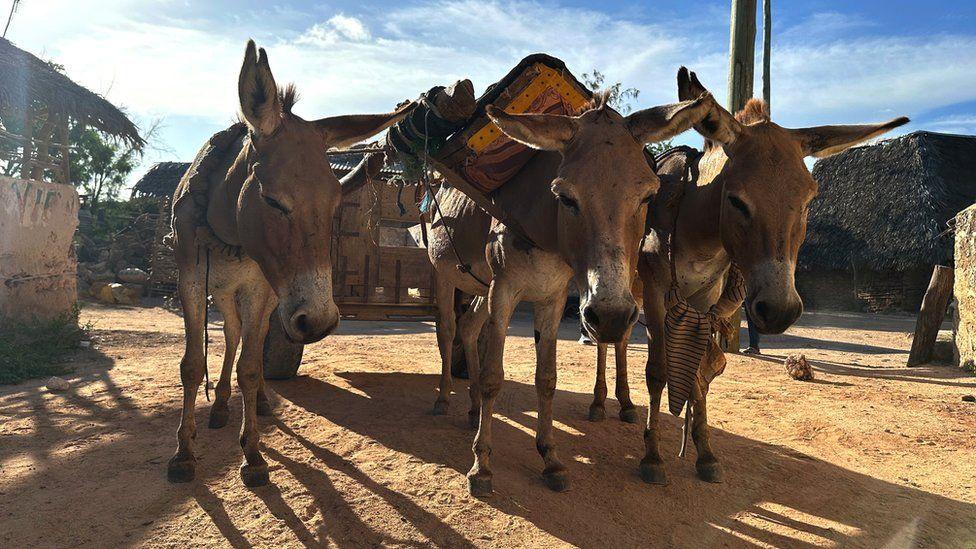
For Ethiopia, wia e be taboo to chop donkey meat, one of di two donkey slaughterhouse for dia dey closed down in 2017 as pipo do protests and condemn di trade for social media.
Kontris like Tanzania and Ivory Coast don ban di slaughter and export of donkey skins for 2022, but China neighbour Pakistan don embrace di trade. Late last year, di media for Pakistan report di kontri first “official donkey breeding farm” to raise “some of di best breeds”.
And na big business e be. According to Prof Lauren Johnston, wey be China-Africa relations scholar from di University of Sydney, di Ejiao market for China increase in value from about $3.2bn (£2.5bn) for 2013 to about $7.8bn for 2020.
E don become concern for public health officials, animal welfare campaigners and even international crime investigators.
Research don show say jaguda pipo dey use shipments of donkey skins to also dey traffic oda illegal wildlife products. Many dey worry say if plenty country ban di trade, e go further push am go underground.
For state leaders, di fundamental question na whether donkeys worth more to a developing economy dead or alive.
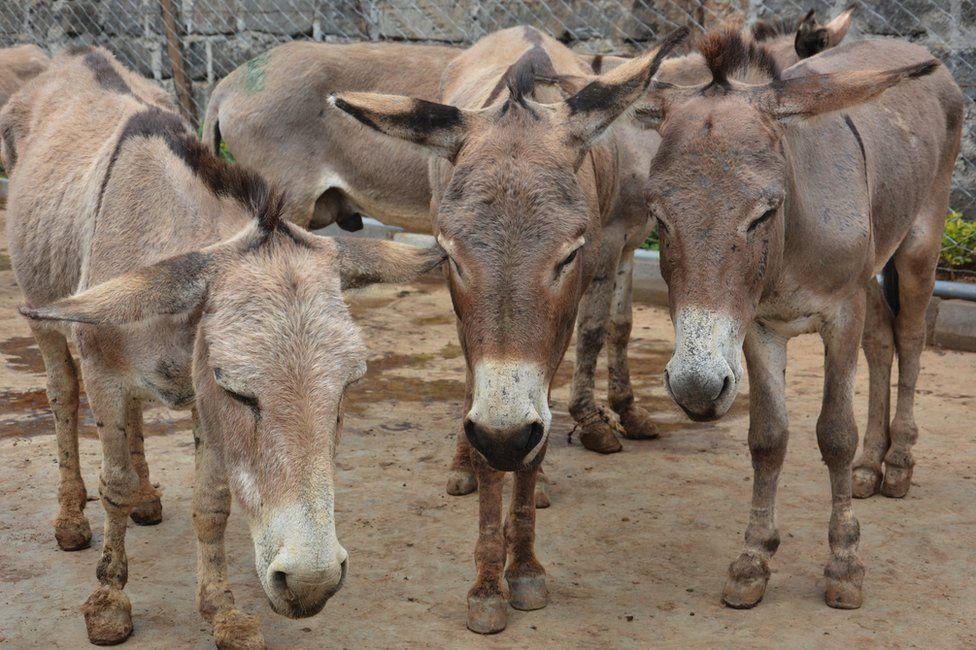
“Most of di pipo for my community na small-scale farmers and dem dey use di donkeys to sell dia goods,” Steve tok. Im bin dey save money from im water business to pay im school fees to study medicine.
Faith Burden, wey be di head vet for Donkey Sanctuary, tok say di animals na very important part of rural life for many parts of the world. Dis na very strong, adaptable animals. “A donkey fit go for perhaps 24 hours without drinking and fit rehydrate very quickly without any problem.”
But for all di quality wey dem get, donkey no dey born easily or quickly. So campaigners dey fear say if di trade kontinu like dis, donkey population go kontinue to dey reduce, and e go deprive more of di poorest pipo of a lifeline and a companion.
Mr Onyango explain: “We no dey ever breed our donkeys for mass slaughter.”
Prof Johnston tok say di donkeys don dey “carry di poor” for plenty years. “Dem dey carry children, women. Na dem carry Mary when she bi get bele to born Jesus,” she tok.
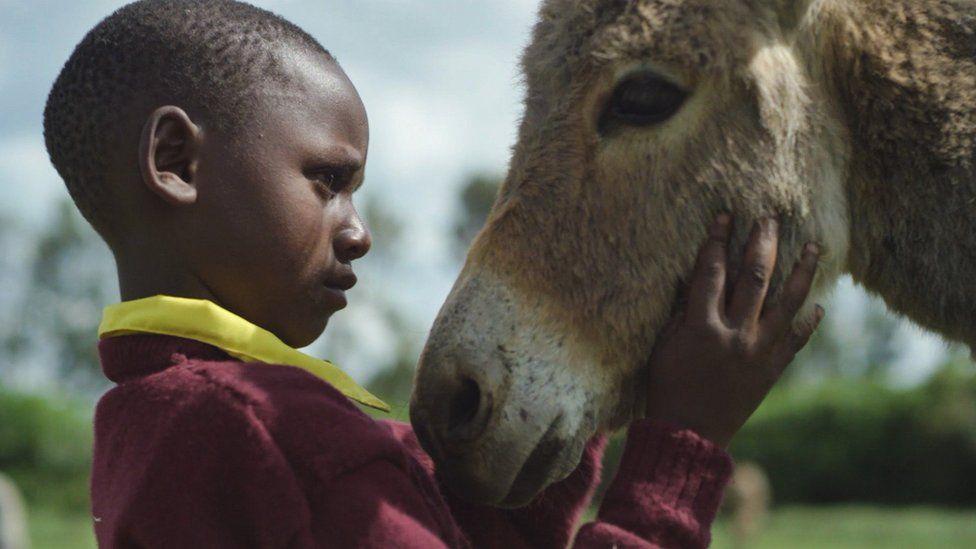
Women and girls na dem dey suffer pass when dem tiff donkey for family, she add.
“Once di donkey don go, den di women go basically become di donkey again,” she explains. And di bitter irony for dat be say di primary target for di Ejiao medicine na wealthier Chinese women.
Na medecine wey don dey for thousands of years, and dem believe say e get plenty benefits, from strengthening di blood to aiding sleep and boosting fertility. But na one Chinese TV show for 2011, im name na ‘Empresses in di Palace’, na im raise di profile of di medicine.
“Na very clever product placement,” Prof Johnston explain. “Di women in di show dey consume Ejiao evri day to stay beautiful and healthy – for dia skin and dia fertility. E become dis product of elite femininity. Ironically, na wetin dey destroy many women life for Africa now.”
Steve, who dey 24 years, dey fear say as im don lose im donkeys, im don lose control over im life and livelihood. “I’m just stranded now,” he tok.
The charity Brooke, dey work with a local animal welfare charity for Nairobi to find donkeys for young pipo – like Steve – wey need am to access work and education.
Janneke Merkx, from the Donkey Sanctuary, tok say di more kontris wey make laws to protect dia donkeys, “di more difficult e go dey”.
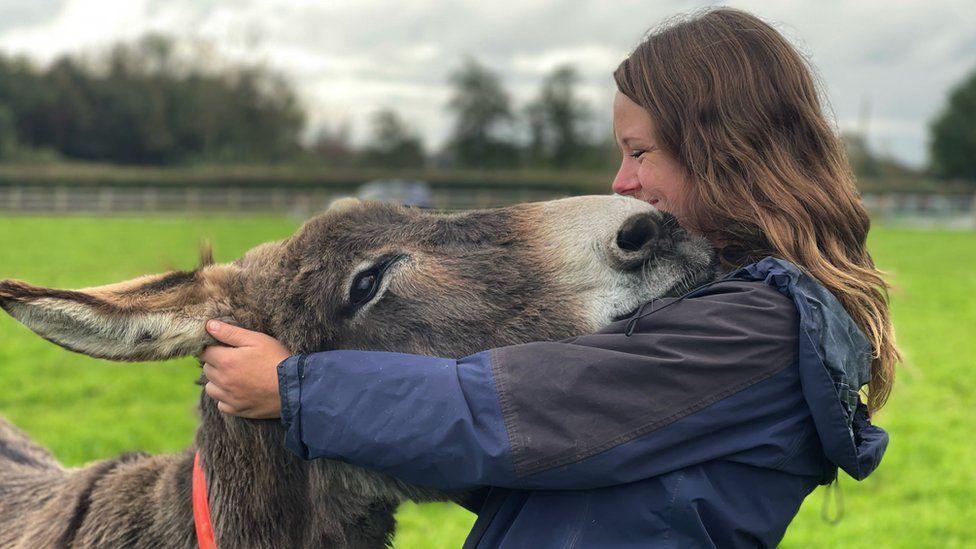
“Wetin we go like see na for Ejiao companies to stop importing donkey skins kpatakpata, make dem dey invest for oda sustainable alternatives – like cellular agriculture (wey be to dey produce collagen for labs). E get safe and effective ways to do dat.”
Faith Burden, wey be di Chief Executive for di Donkey Sanctuary, tok say di donkey skin trade dey “unsustainable and inhumane”.
“Dem dey tif dem, carry dem waka hundreds of miles, put dem for crowded pen and den slaughter dem for where oda donkeys dey watch,” she tok. “Dem need us to speak up against dis.”
Brooke don give Steve a new donkey, a female wey im name Joy Lucky, bicos he feel lucky and joyful to have her.
“I know say she go help me achieve my dreams,” he tok. “And I go make sure say she dey protected.”



